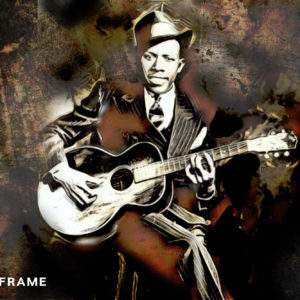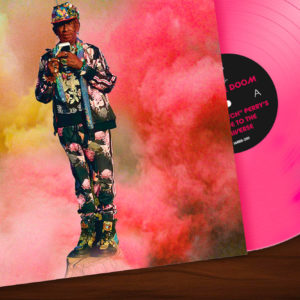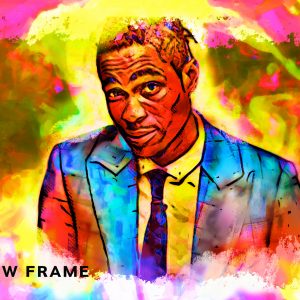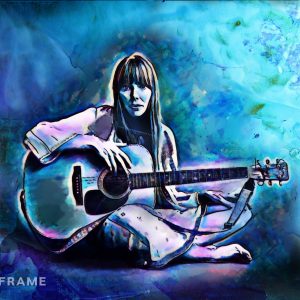Betty Davis, a nasty gal to the end
The American funk pioneer ruffled feathers in the 1970s, creating a feminist message spanning three albums that still resonates today.
Author:
21 February 2022

During a 2005 interview with journalist James Maycock, 1970s funk pioneer Betty Davis said she’d never felt ahead of her time. That she recorded three astounding albums in the early part of that decade that only got their due when reissued early in the new millennium suggests that she was, but Davis made an important distinction: “I don’t think I was ahead of my time, I think I was just testing the time.”
Davis, who died on 9 February 2022 from natural causes at the age of 77, ruffled quite a few feathers in the 1970s with music that was an assault on a world that expected a Black woman to remain in her place. She presented something audiences were not used to seeing: the use of innuendo and suggestion in song and dress to explore a Black woman’s sexual agency.
Songs such as If I’m In Luck I Might Get Picked Up, He Was a Big Freak and Shoo-B-Doop and Cop Him scandalised listeners, while missives like Anti Love Song made clear the feminist politics of Davis’ fire.
Related podcast:
The white music industry didn’t know what to do with her and some Black middle-class audiences, who were coming out of the civil rights era, were appalled. The National Association for the Advancement of Colored People boycotted radio stations that played her music.
“Bourgeois blacks find me very offensive,” Davis said in a 1976 interview quoted by cultural anthropologist Maureen Mahon in her 2020 book, Black Diamond Queens: African American Women and Rock and Roll. “They’ve been programmed to think that black women who shake their asses are whorey.”
It’s not difficult to see how Davis offended in the mid-1970s when a song like He Was a Big Freak, about her lover, still feels bold in 2022.
I used to tie him up
Yeah, he couldn’t get enough
Nah, he’d be on the floor
Oh, begging me for more
Davis was pushing back against male objectification, a woman firmly in control of her own sexuality. As her husband of barely a year in the late 1960s, jazz genius Miles Davis once said Betty was “Madonna before Madonna, Prince before Prince”.
As for the white music industry, Davis said it just couldn’t “categorise” her. Asked to describe her music at the time, her response was one word: raw.
The blues women
Born in July 1944 in Durham, North Carolina, in the United States, Betty Mabry grew up in a home surrounded by the blues. She recalled singing along to her favourite songs on her father’s record player by bluesmen like John Lee Hooker, Robert Johnson, Elmore James and Jimmy Reed.
When Davis finally agreed to tell her story for the 2017 Philip Cox-directed documentary Betty: They Say I’m Different, an interesting anecdote emerged. A young Davis consulted her grandmother about the limitations placed on women in society. Her grandmother’s response was to play her records by women singing the blues: Ma Rainey, Bessie Smith, Big Mama Thornton and Billie Holiday. “Old women who sang it real,” says Davis in the documentary.
Related articlet:
This is instructive because the songs Davis wrote and recorded during the 1970s clearly drew on this legacy. It’s almost impossible not to hear echoes of Smith singing “I’m bound for black mountain, me and my razor and my gun. I’m gonna shoot him if he stands still, and cut him if he runs” from Black Mountain Blues. Or Thornton growling “Cause someday some weights gonna come on your shoulders, babe. It’s gonna feel too heavy, it’s gonna weigh on you. It’s gonna feel just like a ball, ball, ball, oh daddy, and a chain” on Ball ’n’ Chain.
Mahon writes in Black Diamond Queens that “Davis’ debt to the blues was evident in her lyrical content and performance attitude”, and that it was the use of the blues as inspiration rather than church music that made Davis so challenging.
She had a voice that was “dangerous in terms of both how it sounded and what it said”, writes Mahon. “Her live performances celebrated black women’s beauty and desirability, while directly confronting the tangled question of sexual desire and personal autonomy from a black woman’s perspective.”
Earning the name
When Miles Davis and Betty Mabry married in 1968, he was 42 and she a mere 24. Miles writes in his autobiography that while their marriage only lasted a year, it was a year “full of new things” that “helped point the way I was to go, both in my music and in some ways, my lifestyle”.
Betty introduced Miles to the music of Sly & the Family Stone and Jimi Hendrix, and filled the trash with his old Italian suits, giving him a funky sartorial makeover. She also had significant influence on Miles’ seminal 1970 album, Bitches Brew, or “Witches Brew” as it was known before Betty’s intervention. It’s a record that DownBeat magazine described as “the most revolutionary jazz album in history”.
But these are just biographical facts left scattered along the road of the becoming of Betty Davis. Miles was an abusive man whom she described as “violent” and “angry”. “Every day married to him was a day I earned the name Davis,” she laments in Betty: They Say I’m Different.
Related article:
Listening to Anti Love Song from Davis’ 1973 self-titled debut album, it’s difficult not to see in it a statement of independence against Miles’ violent and controlling nature.
That’s why I ain’t gonna love you, cause I know you like to be in charge
Well with me, you know you couldn’t control me
Dontcha? Cause you know I’d make you drop your guard
As the band funks out, a chorus of singers deliver the lines:
I don’t want to love you
Na na na na
I said I ain’t gonna
Na na na na
I said I don’t wanna
Na na na na na
I know what you’d do to me
As Mahon writes: “Anti Love Song is a declaration of independence, a refusal to succumb to the physical enticements of a relationship.”
Closing doors
After her marriage to Miles ended, Betty Davis released three monumental raw funk albums – Betty Davis (1973), They Say I’m Different (1974) and Nasty Gal (1975) – that targeted white America and the patriarchy.
Listening today, it’s clear that Davis was on a mission in the 1970s, leaving a body of work and a message that’s still challenging five decades later. But as she admits in the documentary, the struggle to break through hurt her and left its mark, which alongside the death of her father contributed to her withdrawal from the music industry.
Related article:
“The doors of the industry started to close,” she recalls. “Always white men telling me to change.” She wasn’t going to change and so she vanished back into her life, her music kept alive in countless tributes by contemporary musicians such as Erykah Badu and Janelle Monae, in samples used by rappers Ice Cube and Method Man, and in reissues of her music by the Light in the Attic record label.
“Three albums of hard funk, I put everything there,” Davis tells the documentary makers. And listening to those three albums, it’s impossible to disagree. Her music is more popular today than it has ever been, and it’s clear that the queen of funk is still testing the time.




